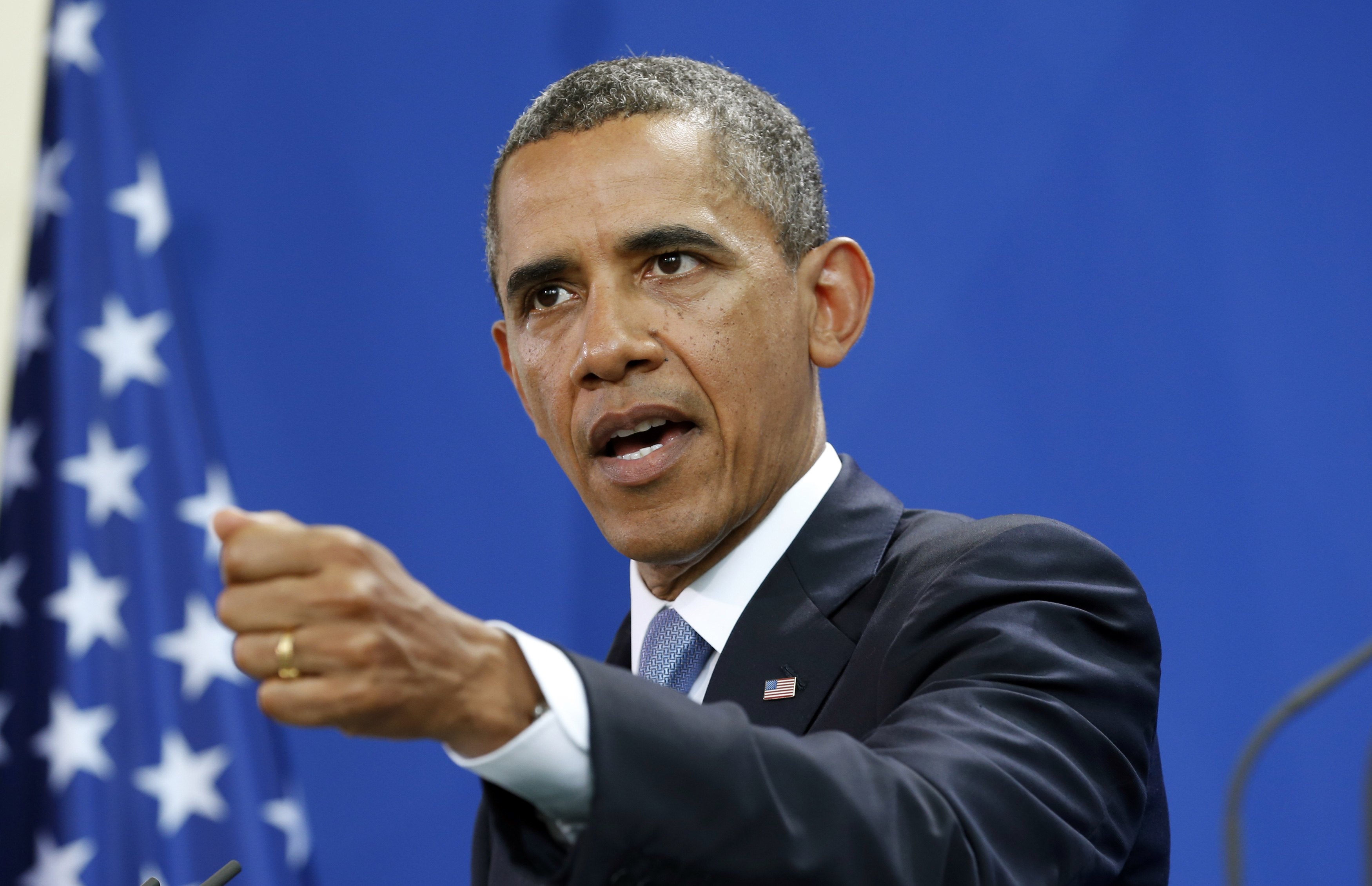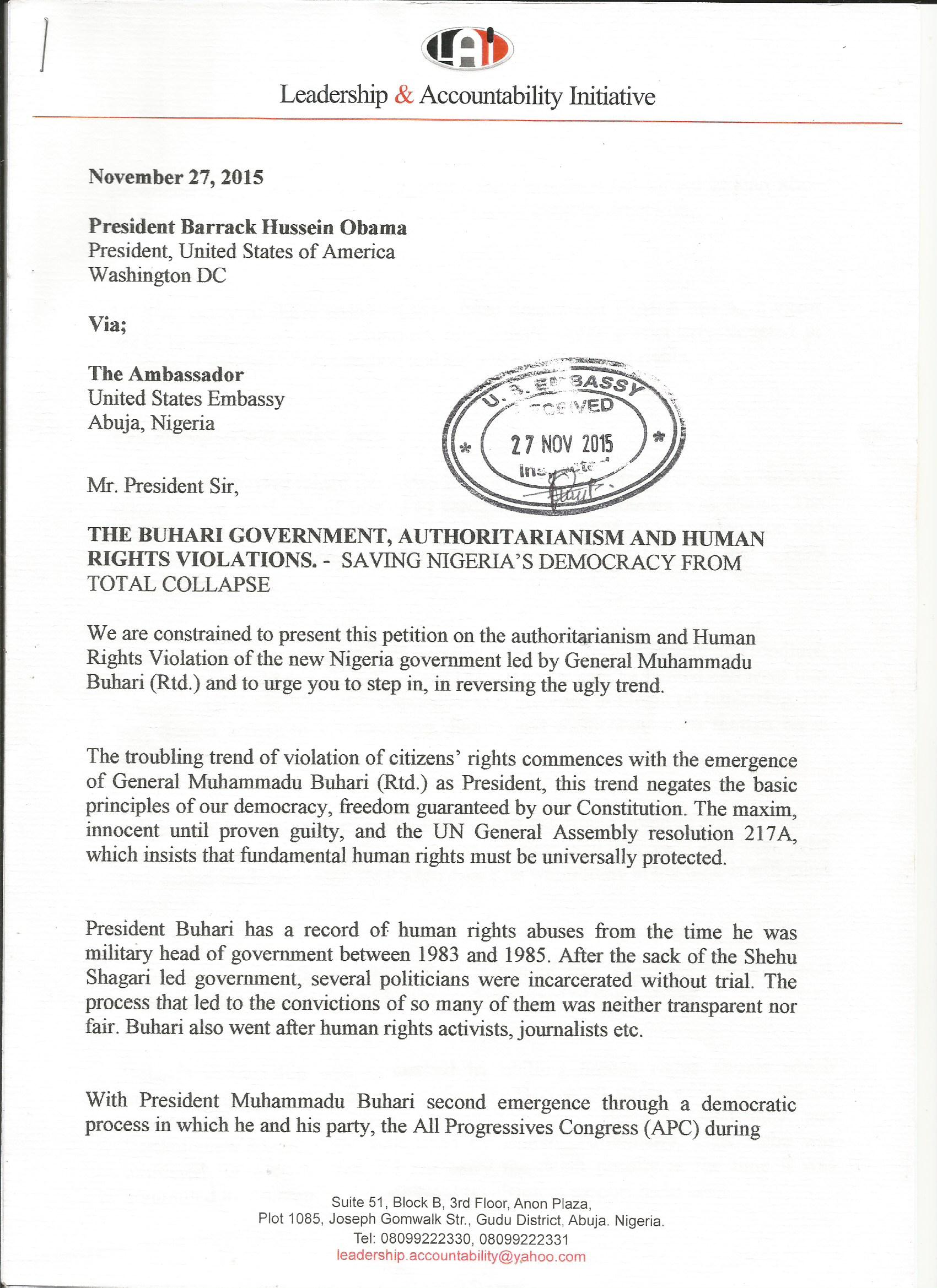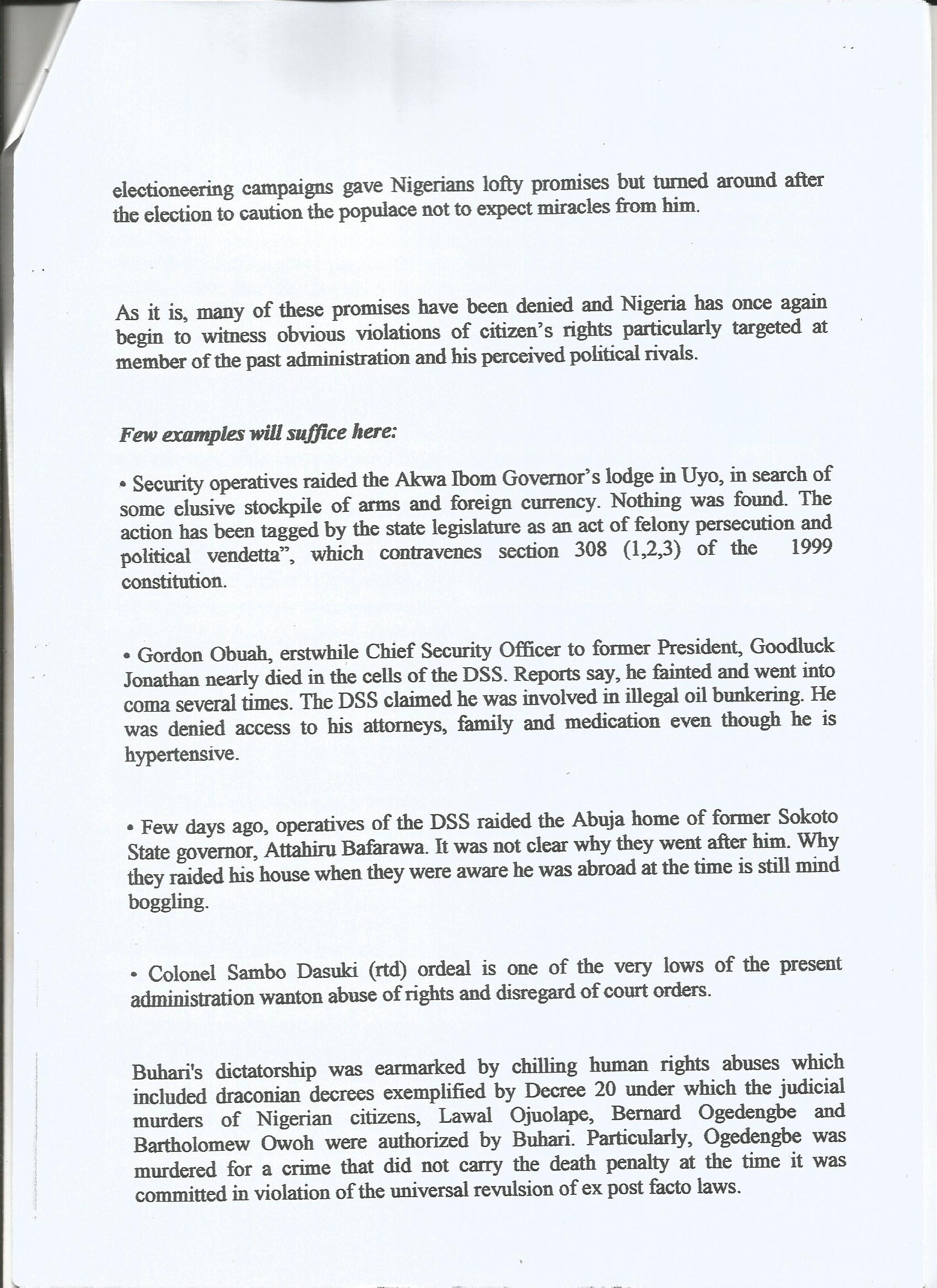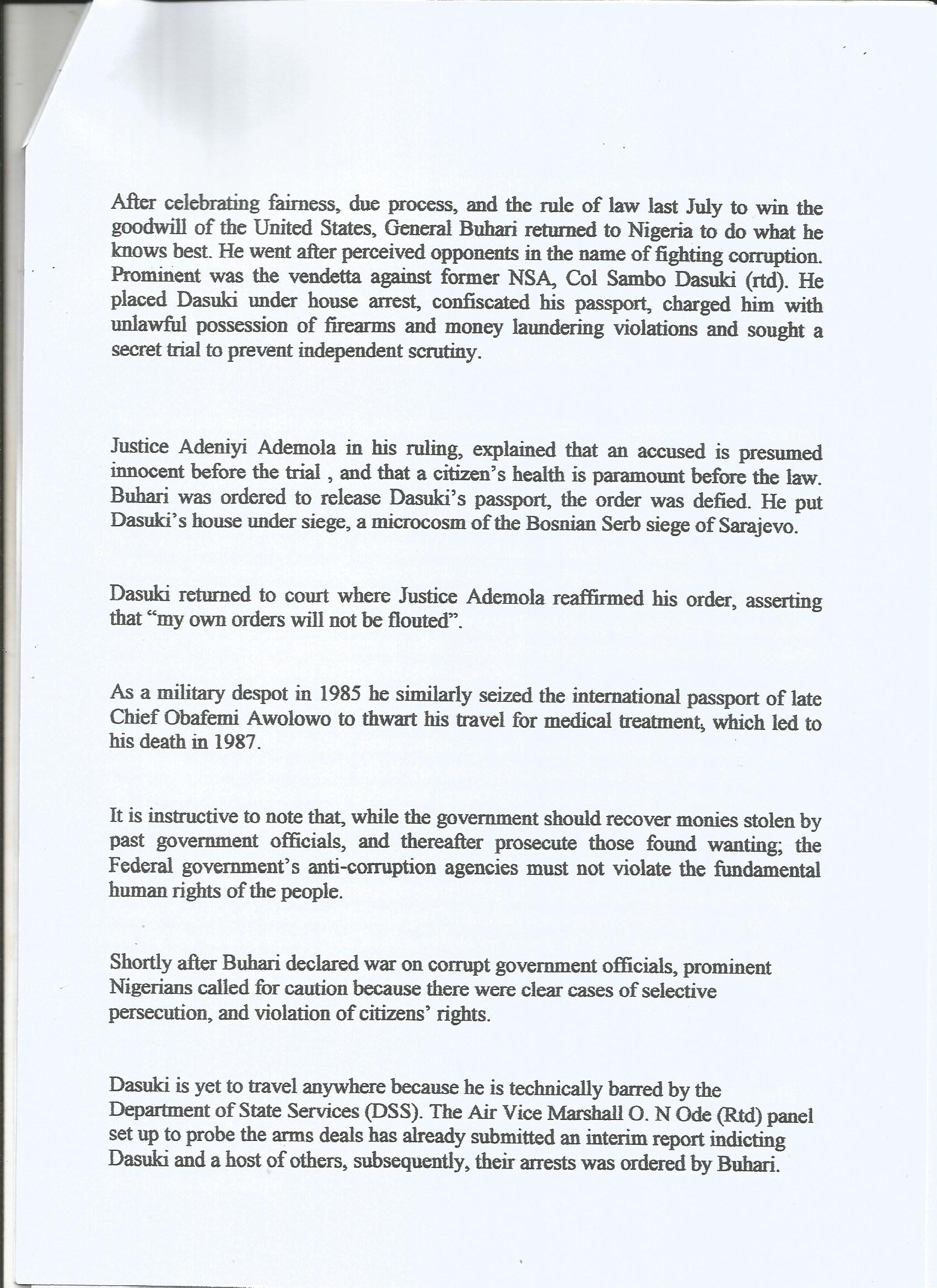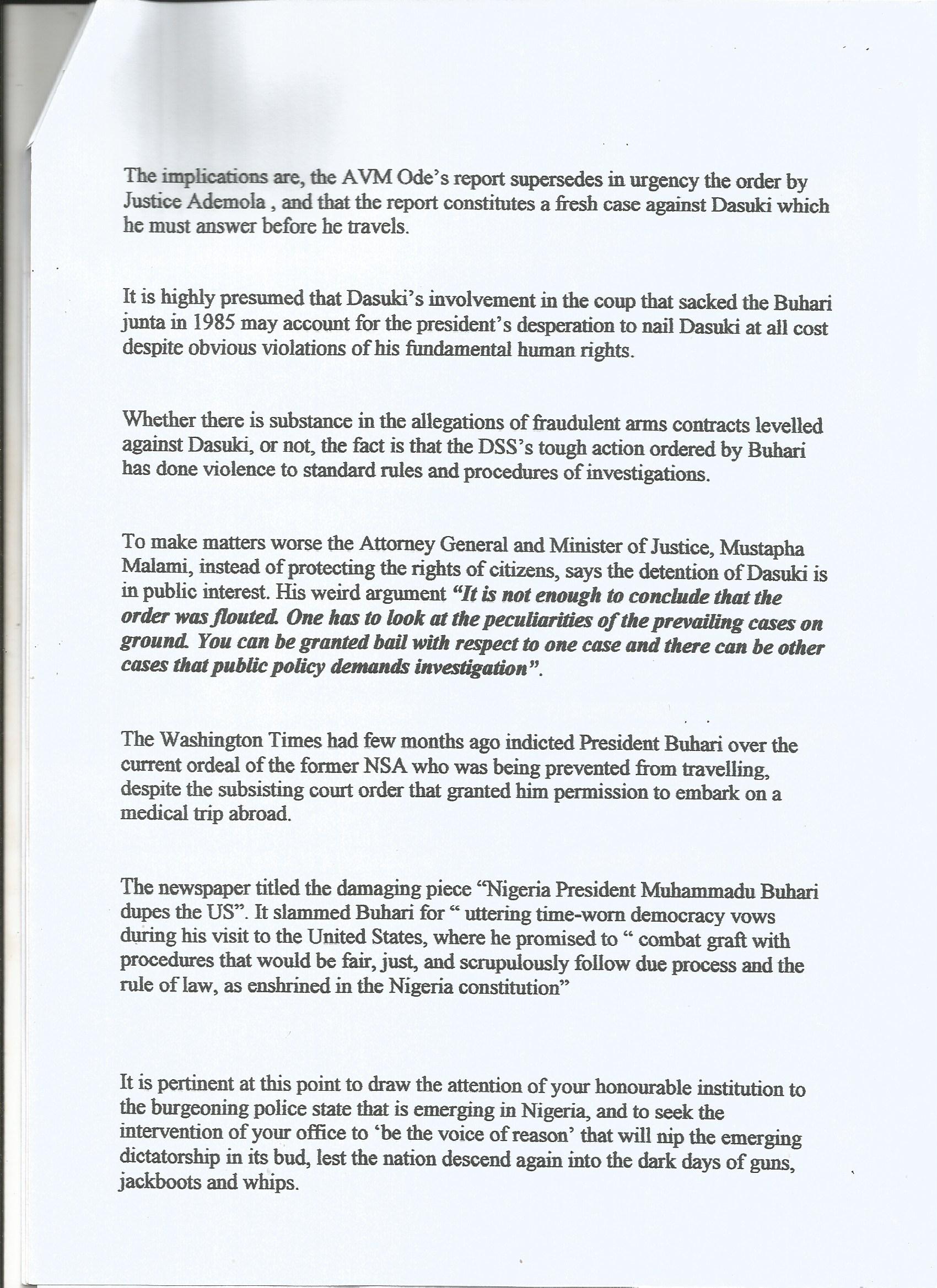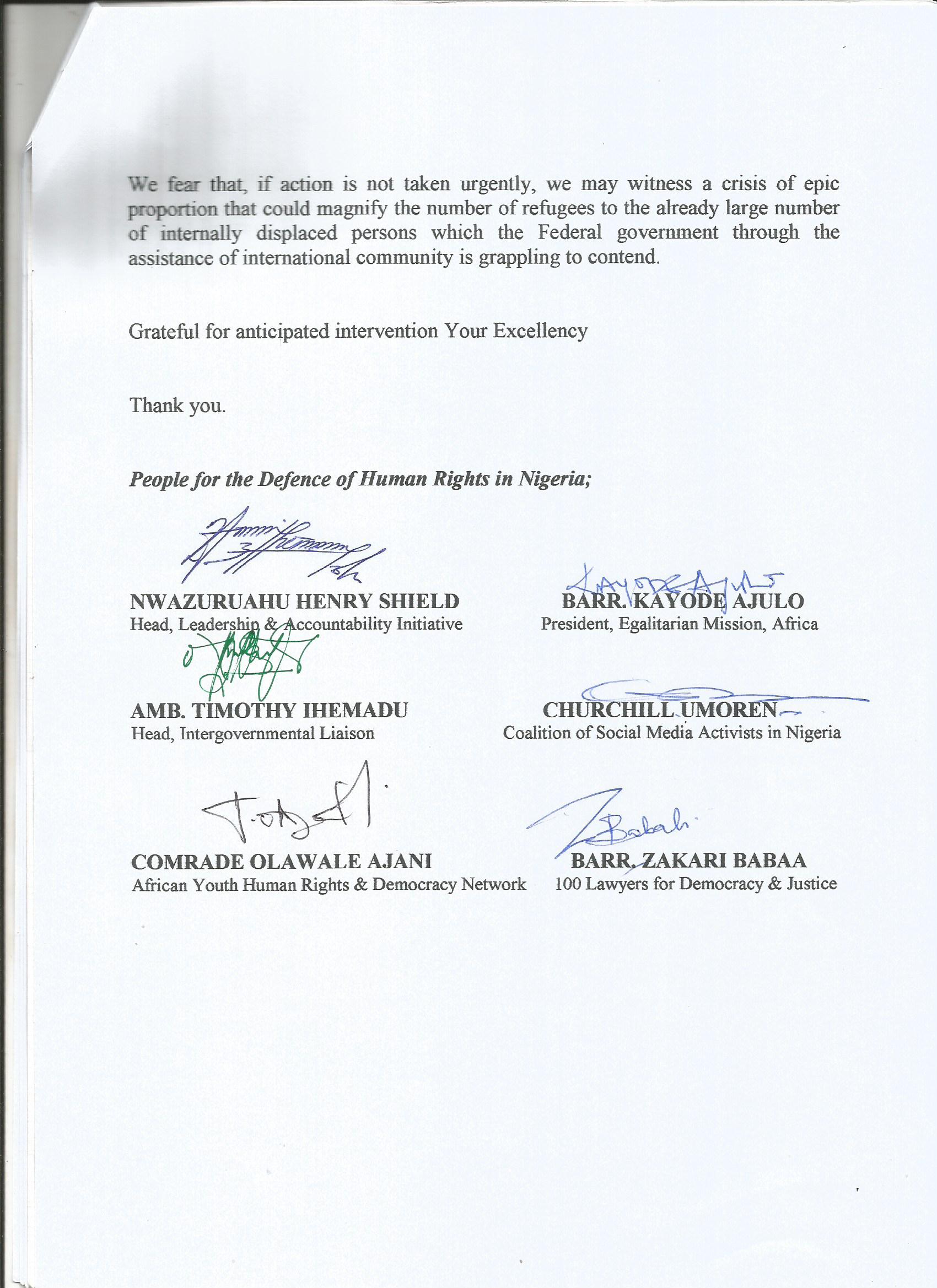Against the backdrop of violations of citizens rights by President Muhammadu Buhari, group of activists have petioned the United States President, Barack Obama, urging him to rally the international community with the intent to stop what they tag a ‘troubling trend”
“President Buhari has a record of human rights abuses from the time he was military head of government from 1983 to 1985. After the sack of the Shehu Shagari led government several politicians were incarcerated without trial. The process that led to the convictions of so many of them was not transparent nor fair. Buhari also went after human rights activists, journalists etc.
With President Muhammadu Buhari second mergence through the ballot Nigeria has once again witness obvious violations of citizen’s rights.
Few examples suffix here:
Security operatives raided the Akwa Ibom Governor’s lodge in Uyo, in search of some elusive stockpile of arms and foreign currency. Nothing was found.. The action has been tagged by the state legislature as an act of felony persecution and political vendetta”, which contravenes section 308 (1,2,3) of the 1999 constitution.
Gordon Obuah, Ex Chief security Officer to former President, Goodluck Jonathan nearly died in the cells of the DSS. Reports say he fainted and went into coma several times. The claim by the DSS was that he was involved in illegal oil bunkering. He was denied access to his attorneys, family, and medication even though he is hypertensive.
Few days ago operatives of the DSS raided the Abuja home of ex Sokoto State governor, Attahiru Bafarawa. It was not clear why they went after him. Why they raided his house when they were aware he was abroad at the time is still mind boggling.
Ex NSA Sambo Dasuki’s ordeal is one of the very lows of the present administration wanton abuse of rights and disregard of court orders.
Buharis dictatorship was earmarked by chilling human rights abuses which included draconian decrees exemplified by Decree 20 under which the judicial murders of Nigerian citizens, Lawal Ojuolape, Bernard Ogedengbe and Bartholomew Owoh were authorized by Buhari. Particularly, Ogedengbe was murdered for a crime that did not carry the death penalty at the time it was committed in violation of the universal revulsion of ex post facto laws.
After celebrating fairness , due process, and the rule of law last July to win the goodwill of the United States, Nigeria returned to Nigeria to do what he knows best. He went after perceived opponents in the name of fighting corruption. Prominent was the vendetta against Dasuki…He placed Dasuki under house arrest, confiscated his passport , charged him with fire arms and money laundering violations, and sought a secret trial to prevent independent scrutiny.
Justice Adeniyi Ademola explained that an accused is presumed innocent before the trial , and that a citizen’s health is paramount before the law. Buhari was ordered to release Dasuki’s passport , the order was defied. He put Dasuki’s house under siege, a microcosm of the Bosnian Serb siege of Sarajevo. Dasuki returned to court Justice Ademola reafirmed his order, asserting “ my own orders will not be flouted”
As a military in 1985 he similarly seized the international passport of late Chief Obafemi Awolowo to thwart his travel for medical treatment which caused his death in 1987.
It is instructive to note that while the government should recover monies stolen by past government officials, and thereafter prosecute those found wanting, the Federal government’s anti corruption agencies must not violate the fundamental human rights of the people.
Shortly after Buhari declared war on corrupt government officials, prominent Nigerians called for caution because there were clear cases of selective persecution, and violation of citizens rights. One very prominent voice was that of Arch-Bishop of Abuja, Cardinal John Onaiyekan. He said “ we have to tackle dishonesty and I believe we need to retrieve stolen goods, especially those that are just pilling up other people’s money. While we do that, it is my strong feeling that we should try to avoid as much as possible, humiliating or disgracing people who may indeed have tried their best to serve the nation”
Dasuki is yet to travel anywhere because he is technically barred by the Department of State Services (DSS). The Air Vice Marshall O. N Ode (Rtd) panel set up to probe the arms deals has already submitted an interim report indicting Dasuki and a host of others, subsequently, their arrests was ordered by Buhari.
The implications are, the AVM Ode’s report supersedes in urgency the order by Justice Ademola , and that the report constitutes a fresh case against Dasuki which he must answer before he travels .
It is highly presumed that Dasuki’s involvement in the coup that sacked the Buhari junta in 1985 may account for the president’s desperation to nail Dasuki at all cost despite obvious violations of his fundamental human rights.
Wether there is substance in the allegations of fraudulent arms contracts leveled against Dasuki, or not, the fact is that the DSS’s tough action ordered by Buhari has done violence to standard rules and procedures of investigations.
To make matters worse the Attorney General and Minister of Justice, Mustapha Malami, instead of protect the rights of citizens, says the detention of Dasuki is in public interest. His weird argument “It is not enough to conclude that the order was flouted. You have to look at the peculiarities of the prevailing cases on ground . You can be granted bail with respect to one case and there can be other cases that public policy demands investigation.
The Washington Times had few months ago indicted President Buhari over the current ordeal of a former National Security Adviser, Col. Sambo Dasuki rtd, despite the subsisting court order that which granted him permission to embark on a medical trip abroad.
The newspaper titled the damaging piece “ Nigeria President Muhammadu Buhari dupes the US”. It slammed Buhari for “ uttering time-worn democracy vows during his visit to the United States, where he promised to “ combat graft with procedures that would be fair, just, and scrupulously follow due process and the rule of law, as enshrined in the Nigeria constitution”


